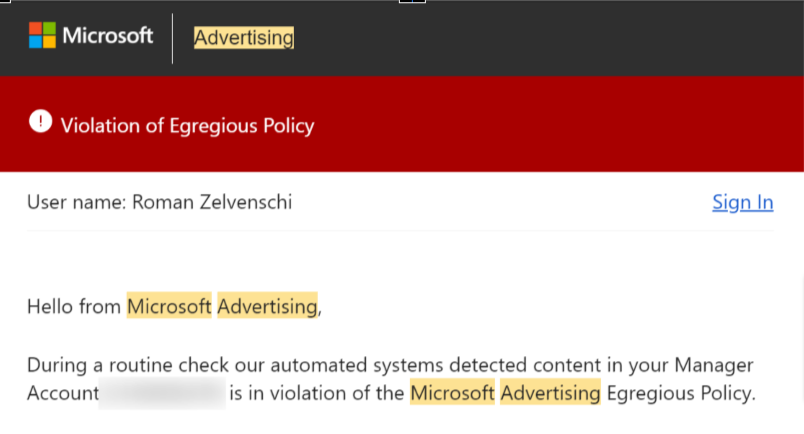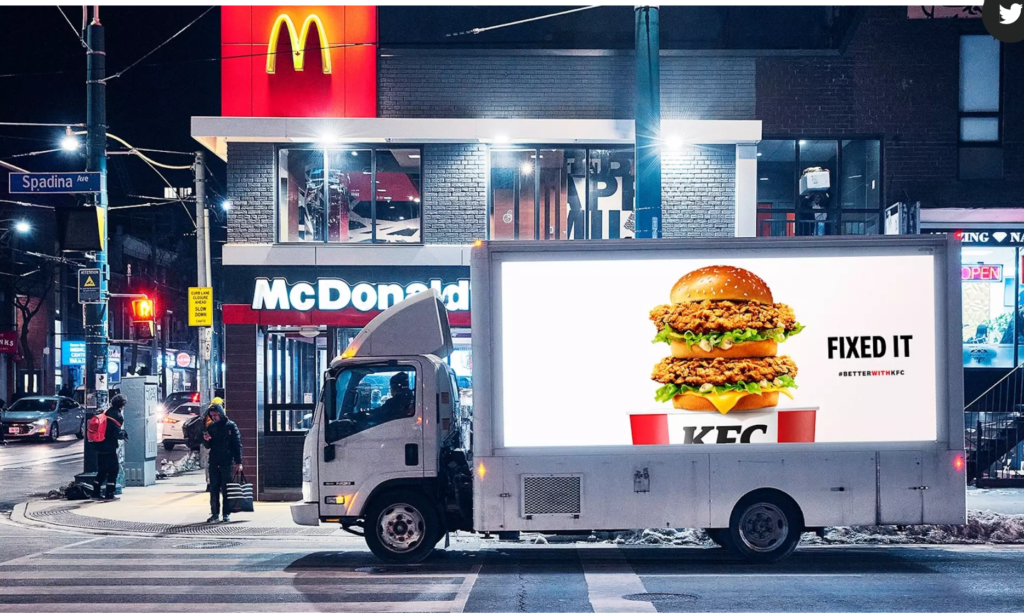We specialize in performance-based marketing for healthcare businesses. That is why we always want to add a volume to our bottom-of-the-funnel prospects. Search engines are the best place to target user intent. We typically start with Google Ads when we market Acoustic Shockwave Therapy for ED.
Adding negative keywords and removing unprofitable postal codes, young people and those searching for pills usually significantly decrease campaign volume. Naturally, we thought, let’s try Microsoft Advertising to add to the volume. Bing now has AI, and if people are searching for ED treatment, we want them.
With this objective, our team allocated $10,000 monthly (aka $120,000 per year) to Microsoft Ads, anticipating expanding our audience reach for one of our ED Marketing clients. Surprisingly, our campaign faced repeated rejections without a clear explanation and, at times, comical communication. At the same time, Microsoft Ads has no problem running ads for enhancement products and supplements.

This article follows the timeline of our communication with Microsoft Ads and some observations on Current Microsoft Ads for ED Treatment.
The Rationale Behind Using Microsoft Ads
We looked to expand our search advertising to Microsoft Ads for three reasons:
- More significant Reach: Capture audience segments not solely on Google Ads
- Diversification: Not putting all advertising efforts into on-platform
- Potential lower CPC: Lower competition on Microsoft Ads can mean more cost-effective campaigns.
Timeline of Our Experience with Microsoft Ads
Research on Microsoft Ads ED Ads Policies
We initially expected ads to be disapproved and wanted to submit client licenses if needed proactively.
- Disapproved healthcare products and supplements: Went through a comprehensive list of disapproved healthcare products by Microsoft Advertising. They all made sense as they are unapproved ED enhancers you’d buy at a convenience store.
- Pharmacy and healthcare products and services: This ED marketing client is based in Canada, so we checked all the regulations. Since they sell Shockwave Therapy and not pills, they don’t need LegitScripts verification.
- Restricted Content Adult Content: Checked out restricted content. We seem to fall under one of the points, which depends on how you define “titillate.”
“Content intended to titillate the user to think about sex or refers to products that aid in the act of sex.”
Draft the Campaign inside Microsoft Ads
Our previous experiences show that simply importing Google Ads campaigns into Microsoft Ads rarely works. That is why we started a new campaign. We immediately received a request for Advertiser Verification.
We’ve submitted the corporate address and certificate of incorporation. The account was verified within 4 hours.
Apply for the Adult Advertising Program Participation Form
Based on our landing page promoting or “titillating” sex. We decided to use the Adult Advertising program participation form. This form includes ads and keywords we pulled from the draft campaign inside the Microsoft Ads Account. Therefore, they’ve seen the actual ads, landing page, and keywords we aim to use.
After five days, the response was:
Hello, Roman, thank you for reaching out to the Microsoft Advertising Global Support Editorial Appeals team.
Your site is not considered to be an adult site. Adult sites must be explicit and contain images or content that is related to pornography or has other sexually explicit content.
For more information, please refer to our adult content policy.
https://about.ads.microsoft.com/en-us/resources/policies/adult-content-policies
Best Regards,
Microsoft Advertising Global Support
Activation of the ED Campaign in Microsoft Ads
After receiving the Adult Team’s response, we proceeded with the campaign despite the possibility of suspension by the automatic filter.
Violation of Egregious Policy (#1)
Within 10 min, we received “Violation of Egregious Policy” from Microsoft Ads. It looks something like this:


Respond to Microsoft Ads Adult Team
I responded to the original ticket from the Adult team, asking why our ads are restricted as “Adult Content.”
The response I got almost immediately was.
Hello, Roman,
thanks for writing in…!
As these are complaint ads, we ask that you submit a standard appeal ticket so that the relevant team may investigate the ads and take appropriate action.
Best Regards,
Microsoft Advertising Global Support
Submit an Appeal (#1)
I write an appeal indicating that we are a legitimate business and are not classified as adult content based on what their other team says.
Appeal Case Closed: Suspension Lifted (#1)
After seven days of waiting, at 1:41 p.m., I received the message that our account was reviewed, all content was compliant, and the suspension was lifted—excellent, time to spend $10,000.

Violation of Egregious Policy (#2)
Not so fast at 1:57 p.m. of the same day – meaning 15 min later. I received another Egregious Violation Policy letter.

Submit an Appeal (#2)
I log into my account and submit an appeal. You only have 1000 characters to describe the issue. I’ve explained that we’ve been reviewed twice now. The Client’s account is verified, and it seems like an automatic filter.
Appeal Case Closed: Suspension Lifted (#2)
Two days later, I received a letter at 12:40 p.m. that “confirmed all content is compliant. We have removed the suspension penalty.”

Violation of Egregious Policy (#3)
Do you want to take a wild guess at what happens next? In 12 minutes, I received another message about Violating the Egregious Policy. I read it for the 50th time, knowing we can’t pinpoint which policy we’ve broken.

Submit an Appeal (#3)
I submit an appeal recounting our experience and asking for the account approval to stick.
Appeal Case Closed: Suspension Upheld
One day later, I received a message that it was determined that we were in violation of, you guessed it, “Egregious Violation,” with a long list of what those include.
Observations on Current Microsoft Ads
for ED Treatment
I decided to see what shows up in the searches and see if our competitors appear in the ads or if Microsoft Ads blocks all shockwave therapy advertisers.
Erectile dysfunction treatment near me
- Bing Chat – doesn’t want to talk about
- Four ads – all advertising pills, including “Leading Sexual Boosters.”

Shockwave therapy for ed near me
- Shopping Ads – got two ads for in-home machines (are those regulated in any way?)
- Bing Chat – gave me some locations for physiotherapy
- 2 Ads – one for Shockwave Therapy and one for Pills.

Gainswave Near Me
- Bing Listing – a closed spammy listing
- 2 Ads – one for pills and one for Shockwave Therapy, the same company.

Well, one company provided Shockwave Therapy, too, so I wanted to see how long they’ve been running ads and if they have any licenses our Client doesn’t have. Not so fast, I got the following information.
I am still determining how it connects to the European Area, as all other advertisers appear in the Ad Library.
No data found for this advertiser ID.
Either it is invalid, or this advertiser has not yet served any ads in the European Economic Area.
My questions for Microsoft Ads Teams
I left more confused than ever before after checking out the searches. You tell me that “sexual boosters” and at-home machines can advertise, but we violate the “Egregious Policy?”
If I had the opportunity to speak directly with the decision-maker for Microsoft Ads, I would suggest:
- Make Policies Crystal Clear: Instead of making lawyers out of marketers, make it easy to buy from you.
- Specify Policy Violation: If the account or ad violates a policy, provide a specific policy to give an advertiser a chance to fix an issue rather than play a guessing game.
- Make Agencies Look Good: If you want agencies to keep recommending media spend with Microsoft Ads, make them look good – give us some support instead of us fending for ourselves in front of the Client who now lacks trust in us because we are an agency that “can’t approve ads.”
What’s Next?
My Client was getting the same messages. He emailed me asking, “Are we giving up on Microsoft Ads?”
I struggled to answer, as after 25 days of trying to spend money with Microsoft Ads, we just got a runaround. Should I keep trying to jump through hoops, or should we put the $10k in TradeDesk or into influencer marketing?
Schedule a call with roman





